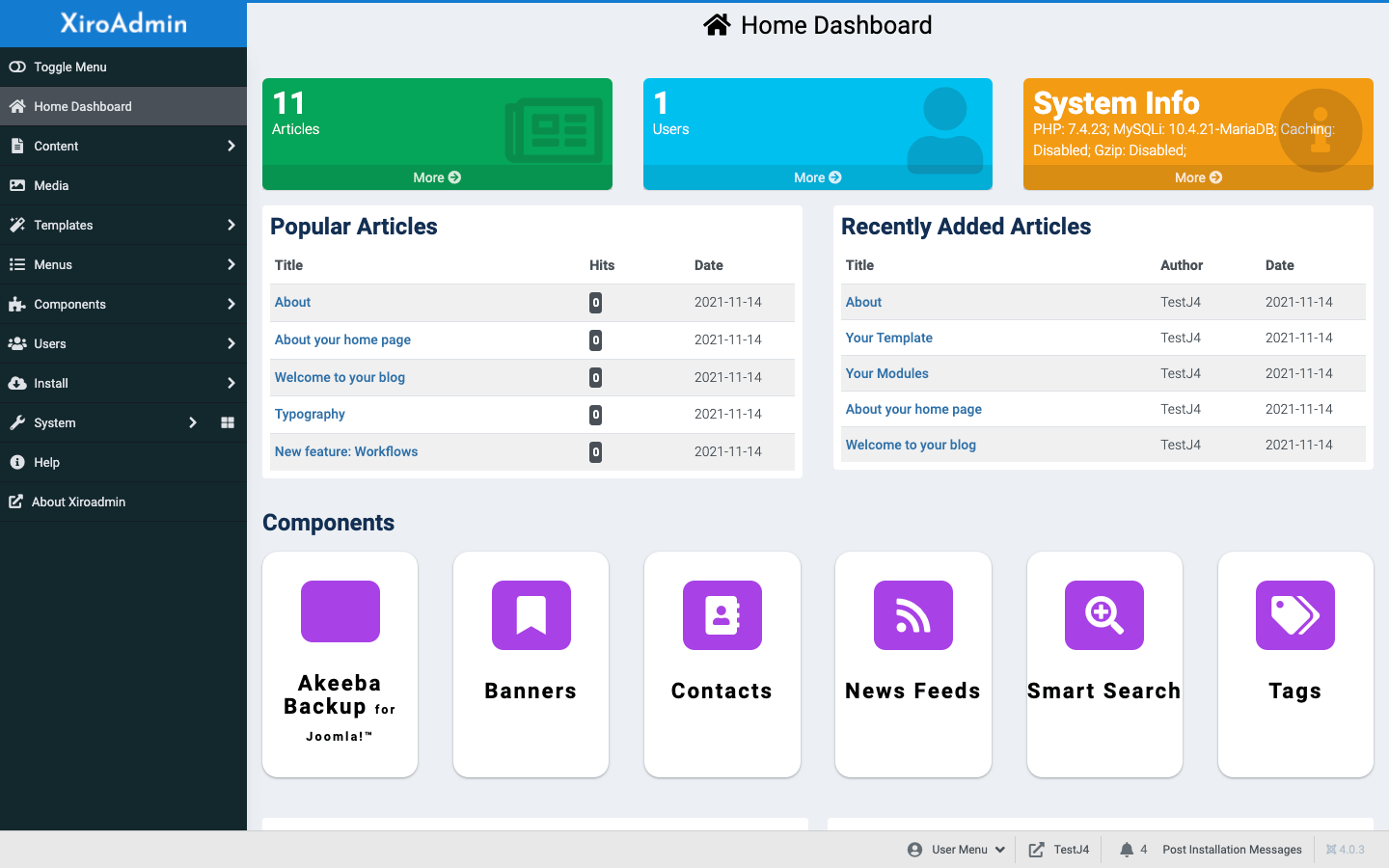The best CMS for small business in 2023
The best CMS for small business
Content Management System (CMS) plays a crucial role in building and maintaining a successful website. A CMS acts as the backbone of your online presence, allowing you to efficiently manage and organize your content while delivering an exceptional user experience. In this comprehensive guide, I will explore the key features and benefits of a top-tier CMS, helping you make an informed decision for your website needs.
Why Choosing the Right CMS Matters
When it comes to creating a website, selecting the right CMS is paramount. The CMS you choose will significantly impact your website's performance, scalability, and overall success. Here's why opting for a robust CMS is vital:
Enhanced User Experience
A well-designed CMS enables seamless navigation and user-friendly interfaces, ensuring a positive experience for your site visitors. With an intuitive CMS, you can easily create and update content, making it effortless for your audience to find the information they seek.
Content Management Made Easy
Gone are the days of complex coding and technical know-how. A feature-rich CMS simplifies content management, allowing you to create, edit, and publish articles, blog posts, and multimedia content with ease. Spend less time wrestling with code and more time crafting engaging content.
Customization and Flexibility
A top-notch CMS provides extensive customization options, allowing you to tailor your website to reflect your brand identity. From choosing themes and templates to adding interactive elements and integrations, a flexible CMS empowers you to create a truly unique and engaging online presence.
Search Engine Optimization (SEO) Benefits
With search engines playing a crucial role in driving organic traffic to your website, it's imperative to optimize your content for maximum visibility. A high-quality CMS often includes built-in SEO features, such as meta tags, customizable URLs, and XML sitemaps, enabling you to optimize your content for search engines and boost your rankings.
Exploring the Best CMS for Your Website
With a plethora of CMS options available, it's essential to evaluate each one based on its unique features, performance, and suitability for your specific needs. Here are some of the leading CMS platforms worth considering:
WordPress
 As the most popular CMS worldwide, WordPress powers millions of websites across diverse industries. Its vast plugin ecosystem, extensive theme selection, and user-friendly interface make it an ideal choice for beginners and experienced webmasters alike. With WordPress, you can create anything from a simple blog to a complex e-commerce platform, all while benefiting from regular updates and a supportive community.
As the most popular CMS worldwide, WordPress powers millions of websites across diverse industries. Its vast plugin ecosystem, extensive theme selection, and user-friendly interface make it an ideal choice for beginners and experienced webmasters alike. With WordPress, you can create anything from a simple blog to a complex e-commerce platform, all while benefiting from regular updates and a supportive community.
Best use for:
- Blog
- Corporate website
For highly scalable applications like e-commerce platforms with huge traffic it is better to develop custom solutions.
Joomla!
 Joomla! is a highly flexible CMS that caters to both beginners and advanced users. It offers a wide range of extensions and templates, empowering you to build a feature-rich and visually appealing website. Joomla!'s robustness shines through when creating community-based sites, forums, or websites requiring advanced user management.
Joomla! is a highly flexible CMS that caters to both beginners and advanced users. It offers a wide range of extensions and templates, empowering you to build a feature-rich and visually appealing website. Joomla!'s robustness shines through when creating community-based sites, forums, or websites requiring advanced user management.
Drupal
 For websites demanding a higher level of complexity and scalability, Drupal is an excellent choice. It excels in handling large volumes of content and offers extensive customization options. Drupal's strong security features and flexibility make it a popular CMS among government organizations, universities, and enterprises.
For websites demanding a higher level of complexity and scalability, Drupal is an excellent choice. It excels in handling large volumes of content and offers extensive customization options. Drupal's strong security features and flexibility make it a popular CMS among government organizations, universities, and enterprises.
Magento
 If you're looking to build an e-commerce website, Magento stands out as a powerful CMS dedicated to online stores. Its rich set of features includes advanced product management, marketing tools, and an extensive range of extensions. With Magento, you can create a seamless shopping experience that drives conversions and boosts your online sales.
If you're looking to build an e-commerce website, Magento stands out as a powerful CMS dedicated to online stores. Its rich set of features includes advanced product management, marketing tools, and an extensive range of extensions. With Magento, you can create a seamless shopping experience that drives conversions and boosts your online sales.
Key Factors to Consider When Choosing a CMS
Selecting the right CMS involves a careful evaluation of various factors. To ensure you make an informed decision, consider the following key aspects:
Ease of Use
A user-friendly CMS minimizes the learning curve and allows you to focus on creating and managing content efficiently. Look for an intuitive interface, drag-and-drop functionality, and a well-documented platform that simplifies the website-building process.
Scalability and Performance
As your website grows, scalability becomes crucial. Opt for a CMS that can handle increasing traffic and content volume without sacrificing performance. Look for caching options, database optimization, and CDN integration to ensure your site remains fast and responsive.
Mobile Responsiveness
In an increasingly mobile-centric world, it's essential to choose a CMS that delivers a seamless experience across all devices. Mobile responsiveness is a critical ranking factor, and a CMS that supports responsive design ensures your website looks and functions flawlessly on smartphones and tablets.
Security Measures
Protecting your website from cyber threats is paramount. Choose a CMS with robust security features, such as regular updates, strong authentication mechanisms, and reliable data encryption. Additionally, an active and supportive community can help address vulnerabilities promptly.
Conclusion
In the fast-paced digital landscape, selecting the right CMS is crucial for your website's success. By leveraging a powerful CMS, you can streamline content management, enhance user experience, and optimize your website for search engines. Whether you choose the versatility of WordPress, the flexibility of Joomla!, the scalability of Drupal, or the e-commerce focus of Magento, investing in a robust CMS will undoubtedly propel your online presence to new heights.
